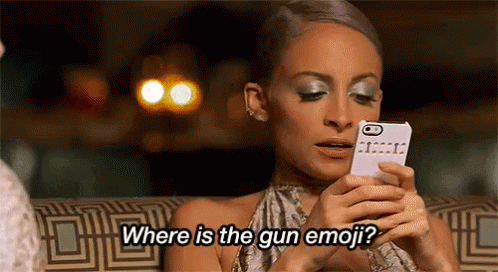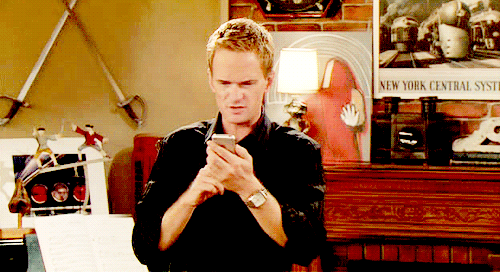Be it the fit of your jeans or the way you part your hair, one seemingly insignificant decision can determine whether you’re ‘chill’ or ‘cheugy’ in the eyes of Gen Z in 2022. PSA for Millennials: think twice before you put your Hogwarts house in your Instagram bio for you run the risk of being labelled ‘ancient’ and please toss that #GirlBoss mug you secretly drink your wine in. While you’re at it, can we also do away with those passive aggressive full stops in your text messages?
If the thought of correct grammar falling out of trend makes you want to ‘😂😂😂’, sorry to say but you’re already behind. Gen Z doesn’t vibe with tears of joy anymore. Find something funny? Use ‘💀’ to convey that you’ve died laughing or ‘😭’ to show overwhelming joy. Now now, before you roll your eyes at ‘kids these days’, it’s relevant to note that with digital laughter being indicated the same way for years, it starts to feel insincere like in the case of ‘LOL' which now has a very sarcastic and condescending tone attached to it.
/elle-india/media/post_attachments/wp-content/uploads/2022/11/Jane-texting-with-Rafael-jane-the-virgin-40218625-1280-2156.png)
Gen Z's Relationship With Emojis
News on the block is that the beloved thumbs-up emoji is the latest to be cancelled by the younger generation along with others like the red heart, the OK hand, the grimacing face and the monkey covering its eyes. “It’s super rude if someone just sends you a thumbs up. It’s a generational communication culture difference. Everyone my age in the office doesn’t do it, but the Gen X people always do it. It took me a bit to adjust and get the thought out of my head that it means they were mad at me,” said one Gen Z Reddit user. “It's just a way to say ‘I've read your message and have nothing to add and I hope and pray to the gods all the bazillion people in this group chat have nothing to say on it too,’” said another.

The thumbs-up emoji may have a positive connotation in Gen X and millennial world, but for Gen Z, the impersonal nature of it is unsetting. It's equivalent to a cold 'k' to a long meaningful paragraph. “The most compelling case regarding the thumbs-up emoji is that although to some it may appear as ‘work done,’ in my opinion it actually means ‘I did what I was pushed to do,’” Ekta Sinha, Digital Intern, ELLE India points out.
More than anything, context matters– if the ‘thumbs up’ is coming from a parent or boss, I'd take it as an ‘okay’ and move on, but people my age using the same emoji? That’s when I know they’re NOT okay with something.
The Downfall Of Full Stops
Labelled as hostile and lacking warmth, using full stops in casual texting has been added as another inter-generational divide between Gen Z and millennials. According to a 2015 study by New York’s Binghamton University, “When speaking, people easily convey social and emotional information with eye gaze, facial expressions, tone of voice, pauses, and so on. People obviously can’t use these mechanisms when they are texting. Thus, it makes sense that texters rely on what they have available to them — emoticons, deliberate misspellings that mimic speech sounds, and, according to our data, punctuation.”

From the number of exclamation points to the words that are capitalised, from the amount of ‘Y’s’ in ‘Hey’ to the ratio of emojis to paragraphs— everything is a mindful decision in today's texting language— including using a full stop. Dr Lauren Fonteyn from Holland’s Leiden University, tweeted, “If you send a text message without a full stop, it’s already obvious that you’ve concluded the message. So if you add that additional marker for completion, they will read something into it and it tends to be a falling intonation or negative tone.” The effort taken to go to the second page of the keyboard just to put that extra dot invites overinterpretation. "Full stops in formal/email conversations are perfectly okay but when someone uses it in text messages, I get the impression that I have offended them in some way which makes me re-read and re-think earlier discussions with the person, " Juzelle Rodrigues, Digital Intern, ELLE India reveals.
While Gen Z gets picked on for being overly sensitive, millennials get called out for holding on to their ways a little too tight. So, the question is, do we throw out the dictionary and change the rules of grammar to adapt to Gen Z’s way of texting or stick to proper punctuation and syntax for their generational neighbours?
Maybe we can all just shift to voice notes instead and call it a day.
/elle-india/media/agency_attachments/2024/12/12/2024-12-12t050944592z-2024-11-18t092336231z-czebsydrcd4dzd67f1wr.webp)
/elle-india/media/agency_attachments/2024/12/12/2024-12-12t050944592z-2024-11-18t092336231z-czebsydrcd4dzd67f1wr.webp)
/elle-india/media/media_files/2025/06/13/LjKZqcSP25GxKomzDeGW.webp)
/elle-india/media/post_attachments/wp-content/uploads/2022/11/Untitled-design-2022-11-08T104759.594-1.png)